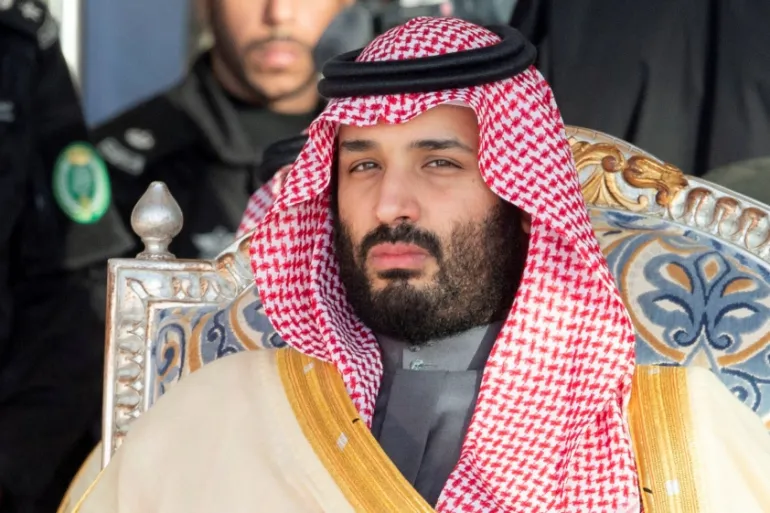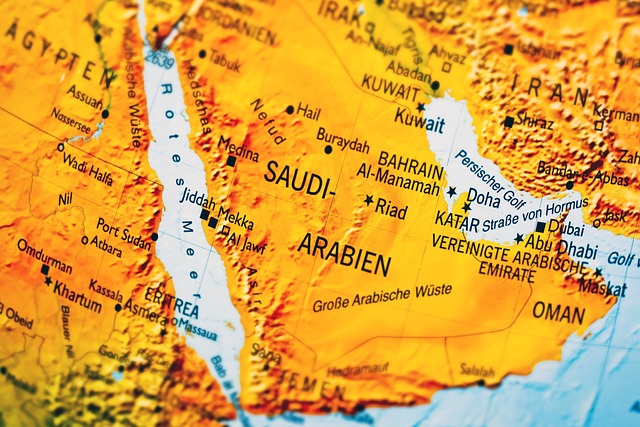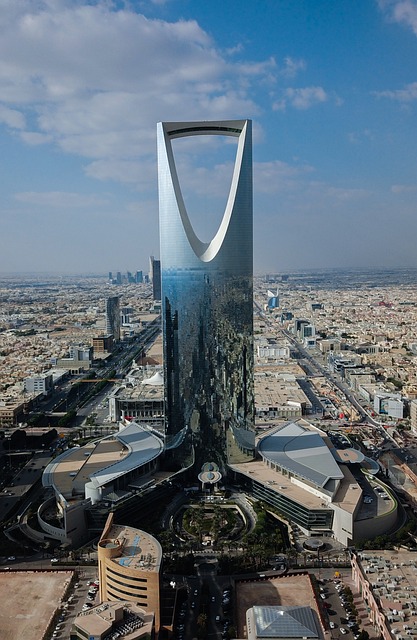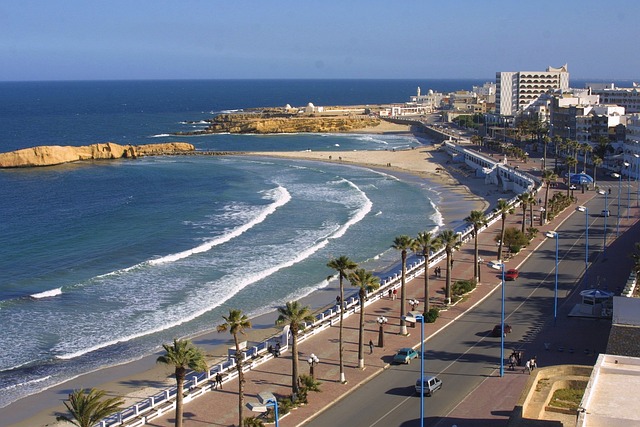Saudi Anti-Corruption Campaign (2017–2019):

The 2017–2019 Saudi Anti-Corruption Campaign, spearheaded by Crown Prince Mohammed bin Salman (MBS), resulted in a sweeping crackdown on corruption. Through settlements with numerous senior princes, ministers, and top businessmen, the campaign successfully recovered over $106 billion. This remarkable achievement stands as a unique and phenomenal example of swiftly reclaiming such a substantial sum within a relatively short timeframe.
- The Saudi Anti-Corruption Campaign (2017–2019):
- In November 2017, MBS ordered the mass arrest of prominent Saudi Arabian princes, government ministers, and business people. This crackdown took place weeks after the creation of an anti-corruption committee led by MBS.
- The arrests aimed to centralize political power in MBS’s hands and undermine the pre-existing structure of consensus-based governance among Saudi elites1.
- Approximately 381 individuals were apprehended during this campaign1.
- Saudi Arabian banks froze over 2,000 domestic accounts as part of the crackdown1.
- The Saudi government targeted cash and assets worth up to $800 billion, claiming that this amount was linked to corruption1.
- Recovery and Settlements:
- The anti-corruption committee concluded its mission in January 2019, recovering $107 billion for the state treasury through settlements with senior princes, ministers, and top businessmen1.
- Allegations against those detained included money laundering, bribery, extortion, and taking advantage of public office for personal gain1.
- Impact and Significance:
In summary, the anti-corruption drive led by MBS aimed to tackle corruption within the kingdom, resulting in significant recoveries and reshaping the power dynamics among Saudi elites1
The specific charges against the detained individuals during Saudi Arabia’s anti-corruption campaign varied, but they included allegations such as money laundering, bribery, extortion, and abusing public office for personal gain. These charges were part of the government’s effort to address corruption within the kingdom.

Saudi Anti-Corruption Campaign: High-profile Individuals Charged
- Prince Alwaleed bin Talal:
- A prominent billionaire and member of the Saudi royal family.
- Detained in the Ritz-Carlton hotel in Riyadh during the crackdown.
- Accused of corruption, money laundering, and bribery.
- Released after settling with the government.
- Prince Miteb bin Abdullah:
- Former head of the Saudi Arabian National Guard.
- Detained and accused of embezzlement, accepting bribes, and misuse of public funds.
- Settled with the government and was released.
- Bakr bin Laden:
- Chairman of the Saudi Binladin Group (a major construction company).
- Arrested and accused of corruption.
- His company faced financial penalties as part of the crackdown.
- Waleed al-Ibrahim:
- Owner of MBC Group (a major media conglomerate).
- Detained and accused of corruption.
- Settled with the government and was released.
- Saleh Abdullah Kamel:
- Founder of the Dallah al Baraka Group (a conglomerate with interests in banking, healthcare, and real estate).
- Arrested and accused of corruption.
- Settled with the government and was released.
These cases highlight the scale and impact of the anti-corruption campaign led by Crown Prince Mohammed bin Salman.
The Settlements During Saudi Anti-Corruption Campaign Involved Negotiations between the Government and the Accused Individuals.
Detention and Investigation:
- High-profile individuals were detained, often in luxury hotels like the Ritz-Carlton in Riyadh.
- Investigations were conducted to gather evidence related to corruption, bribery, and other financial crimes.
- Negotiations and Agreements:
- The accused individuals were allowed to settle their cases.
- Negotiations took place between the government and the detainees or their representatives.
- Settlements were reached through financial agreements.
- Financial Penalties and Asset Seizures:
- Detainees agreed to pay substantial sums of money to the government.
- These payments were considered restitution for alleged ill-gotten gains.
- Some assets were also seized as part of the settlements.
- Release and Legal Closure:
- Once the settlement was finalized, the individual was released from detention.
- Legal proceedings against them were closed, and they were no longer subject to criminal charges related to the specific allegations.
- Secrecy and Privacy:
- Details of the settlements were often kept confidential.
- The government aimed to strike a balance between accountability and maintaining stability within the country.
In summary, the settlements allowed accused individuals to avoid lengthy legal proceedings by paying substantial amounts to the government. However, the lack of transparency raised concerns about due process and fairness.
Some of the accused individuals did publicly deny the charges during Saudi Arabia’s anti-corruption campaign. However, due to the lack of transparency and confidentiality surrounding the proceedings, specific details about their denials were not widely reported. The settlements and releases were often conducted discreetly, leaving room for speculation and debate.
The Saudi Anti-corruption Campaign Led by Crown Prince Mohammed bin Salman had Several Notable Impacts on the Country’s Business Climate:
- Increased Transparency and Accountability:
- The crackdown signaled a commitment to addressing corruption within the kingdom.
- It sent a message that no one, regardless of their status, was immune to scrutiny.
- This increased transparency encouraged businesses to reassess their practices and comply with regulations.
- Business Uncertainty and Investor Confidence:
- The sudden arrests and asset seizures created uncertainty among investors and business leaders.
- Some investors became cautious about doing business in Saudi Arabia due to the perceived risks.
- However, others saw it as a positive step toward a cleaner business environment.
- The shift in Power Dynamics:
- The campaign consolidated power in MBS’s hands by weakening rival factions.
- Business elites who were previously influential faced challenges, leading to a reshuffling of power structures.
- New players emerged, influencing investment decisions and business partnerships.
- Economic Reforms and Diversification:
- The government aimed to diversify the economy away from oil dependence.
- The anti-corruption drive was part of broader economic reforms.
- It encouraged businesses to adapt and explore non-oil sectors.
- Long-Term Effects:
- While the immediate impact was disruptive, the long-term effects remain debated.
- Some argue that the campaign improved governance and reduced corruption.
- Others express concerns about due process and the lack of transparency.
In summary, the campaign positively challenged Saudi Arabia’s business climate, shaping investor perceptions and influencing economic policies.
The Saudi Business Community Response to the Saudi Anti-Corruption Campaign A Mix of Caution, Uncertainty, and Adaptation:
- Caution and Uncertainty:
- Many business leaders were initially apprehensive due to the sudden arrests and asset seizures.
- Investors worried about the risks associated with business in an environment where powerful figures could be targeted.
- Adaptation and Compliance:
- Over time, businesses adjusted their practices to align with the government’s anti-corruption efforts.
- Compliance with regulations and transparency became more critical.
- Some companies reviewed their internal controls and governance structures.
- Loyalty and Pragmatism:
- Some business elites remained loyal to the ruling family, emphasizing stability and continuity.
- Pragmatic considerations led them to adapt rather than resist.
- New alliances formed as power dynamics shifted.
- Long-Term Impact:
- The campaign prompted discussions about the rule of law, due process, and transparency.
- While some welcomed the crackdown, others expressed concerns about its methods and lack of clarity.
In summary, the business community navigated a complex landscape, balancing loyalty, pragmatism, and the need to comply with evolving norms.
The Media Coverage of the Saudi Anti-Corruption Campaign, both Within the Country and Internationally. Key points:
- Domestic Coverage:
- Saudi Media: State-controlled media outlets highlighted the government’s efforts to combat corruption. They emphasized the recovery of $107 billion in settlements, including property, companies, and cash1.
- Secrecy and Discretion: However, details about specific detainees and their settlements were often kept confidential, leading to speculation and debate.
- International Coverage:
- Global Attention: International news agencies, such as the BBC, Al Jazeera, and others, closely followed the developments.
- Mixed Perspectives: Coverage varied. Some praised the crackdown as a necessary step to address corruption, while others raised concerns about due process and transparency2.
- Impact on Business Climate: Reports discussed how the campaign affected Saudi Arabia’s business environment, investor confidence, and economic reforms3.
- Individual Cases:
- Prominent Figures: High-profile individuals like Prince Alwaleed bin Talal and Prince Miteb bin Abdullah received significant media attention during their detention and subsequent release.
- Torture Allegations: Some reports mentioned allegations of torture against detainees at the Ritz-Carlton hotel, which the government denied1.
In summary, media coverage highlighted the scale, impact, and controversies surrounding the anti-corruption drive led by Crown Prince Mohammed bin Salman.
Media Coverage of Saudi Anti-Corruption Campaign Challenges and Restrictions:
- Censorship and Self-Censorship:
- Direct Government Censorship: The Saudi government commonly censors media outlets, limiting their ability to report freely.
- Self-Censorship: Journalists often self-censor to avoid draconian sentences. They refrain from negative coverage related to the royal family, Islam, religious authorities, or Saudi foreign policy1.
- Online Manipulation:
- Proposed Media Law:
- In November 2023, the General Authority of Media Regulation (GAMR) proposed a new Media Law to overhaul existing regulations.
- The draft law extends to social media platforms, requiring licenses for content creation and dissemination, potentially leading to further restrictions3.
In summary, media outlets in Saudi Arabia faced both direct censorship and self-imposed limitations while covering the anti-corruption campaign.
The Saudi Anti-Corruption Campaign had Significant Implications for Press Freedom. Key points:
- Increased Control and Censorship:
- The government tightened control over media outlets, limiting their ability to report independently.
- Journalists faced pressure to avoid critical coverage of the royal family, religious authorities, and sensitive topics.
- Fear and Self-Censorship:
- Fear of reprisals led to self-censorship among journalists and media organizations.
- Reporting on controversial issues became riskier, impacting investigative journalism and public discourse.
- Online Surveillance and Restrictions:
- Online platforms were closely monitored, and dissenting voices were targeted.
- Social media users faced restrictions, with some facing legal consequences for expressing dissenting views.
- Challenges to Transparency and Accountability:
- The lack of transparency around the anti-corruption campaign affected journalists’ ability to report accurately.
- Detainees’ settlements were often kept confidential, limiting public understanding of the process.
In summary, the campaign had a chilling effect on press freedom, leading to restricted reporting and increased caution among journalists.
During the anti-corruption campaign in Saudi Arabia, some journalists faced legal consequences for their reporting. However, due to the lack of transparency and the government’s control over media outlets, specific cases were often not widely publicized. Journalists who expressed dissenting views or criticized powerful figures risked reprisals, leading to self-censorship and limited investigative reporting
International Journalism Organizations Monitored and Reported on Saudi Anti-Corruption Campaign:
- Transparency International:
- Transparency International, a global anti-corruption organization, provided an overview of corruption and anti-corruption efforts in Saudi Arabia.
- They highlighted challenges related to opacity, state-controlled media, and the effectiveness of existing anti-corruption legislation1.
- Media Coverage:
- International news agencies covered the campaign extensively.
- The crackdown was seen as an attempt by Crown Prince Mohammed bin Salman to consolidate power in the oil-rich rentier state2.
- Impact on Image and Economy:
- Analysts noted that while the campaign ended, it left a lasting impact on Saudi Arabia’s image and economic outlook.
- Foreign investors were unsettled, and the government aimed to restore investor confidence3.
- UNDP Initiative:
In summary, international organizations closely followed the developments, highlighting both challenges and opportunities related to corruption in Saudi Arabia.
International Organizations Involved in Assessing and Measuring Corruption during Saudi Anti-Corruption Campaign:
- UNDP’s Global Initiative for Measuring Corruption:
-
- The United Nations Development Programme (UNDP) partnered with Saudi Arabia’s Oversight and Anti-Corruption Authority (Nazaha) to launch a global initiative for measuring corruption.
- This multi-year initiative, spanning 2023-2027, aims to evaluate progress in fighting corruption and track efforts across countries.
- Practitioners, policymakers, civil society organizations, academia, and the private sector collaborate to develop evidence-based indicators1.
- Other Organizations’ Participation:
- The Organization of Islamic Cooperation (OIC) hosted a ministerial meeting on anti-corruption law enforcement.
- International organizations like the United Nations Office on Drugs and Crime (UNODC), INTERPOL, and the Egmont Group of Financial Intelligence Units participated.
- Experts from Saudi Arabia and abroad also contributed to discussions on protecting integrity and combating corruption2.
In summary, these initiatives aimed to enhance transparency, accountability, and global cooperation in addressing corruption.
International Organizations Monitored Saudi Arabia’s Efforts to Combat Corruption :
- UNODC’s GlobE Network:
- The Kingdom of Saudi Arabia, through its Oversight and Anti-Corruption Authority (Nazaha), reaffirmed its commitment to global anti-corruption efforts.
- In 2020, Saudi Arabia contributed $10 million to establish the GlobE Network, an initiative supported by the United Nations Office on Drugs and Crime (UNODC).
- The Globe Network fosters informal cooperation among 206 authorities from 116 countries. It provides a secure communication platform for anti-corruption practitioners to share information and collaborate on cross-border cases1.
- Global Initiative for Measuring Corruption:
- The UNDP and Nazaha jointly launched a new global initiative for measuring corruption.
- Practitioners, policymakers, civil society organizations, academia, and the private sector evaluate countries’ progress in addressing various forms of corruption and achieving Sustainable Development Goal 16 targets2.
- Participation in International Conferences:
- Saudi Arabia actively participates in international conferences related to corruption measurement and data utilization.
- These efforts align with the United Nations Convention against Corruption (UNCAC) and Saudi Arabia’s Vision 2030, emphasizing governance, transparency, accountability, and anti-corruption measures3.
These initiatives demonstrate Saudi Arabia’s commitment to fostering international cooperation and enhancing global anti-corruption efforts.
Saudi Arabia has Implemented Several Anti-Corruption Measures:
- Anti-Bribery Law:
- The primary anti-corruption provisions are provided by the Anti-Bribery Law, issued by Royal Decree in 1996 and most recently amended in 2021.
- This law primarily focuses on “public servants” and certain positions in the private sector treated as public servants1.
- Enforcement and Reporting:
- Saudi Arabia has increased enforcement of anti-bribery and corruption regulations.
- More reporting, communication, and oversight are in place to combat bribery and influence societal perspectives2.
- Challenges:
In summary, Saudi Arabia continues its efforts to combat corruption, but transparency and implementation challenges persist.
In the Context of Secular Law, Corruption in Saudi Arabia is Defined as Follows:
- Violation of Rules and Controls: Corruption occurs when an individual violates any rules and controls imposed by law.
- Undermining Public Interest: It involves conduct that undermines public interest by betraying or disregarding it, where private interest prevails over public interest.
- Abuse of Public Office: Any abuse of public office with the purpose of obtaining personal gains is also considered a form of corruption1.
Additionally, Saudi Arabia has implemented the Anti-Bribery Law, which primarily focuses on “public servants” and certain positions in the private sector treated as public servants. This law aims to combat bribery and corruption within the country2.
Saudi Arabia Investigates and Prosecutes Corruption Cases Through Several Mechanisms:
- Inspection Raids and Arrests:
- The Oversight and Anti-Corruption Authority (Nazaha) conducts inspection raids to uncover corrupt practices.
- Officials accused of corruption are arrested, and investigations are initiated1.
- Charges and Accusations:
- The implicated officials face charges such as bribery, abuse of power, forgery, and money laundering.
- These charges apply to individuals from various ministries and agencies1.
- Prosecution and Accountability:
- The Control and Investigation Board has the authority to prosecute bribery cases before the Board of Grievances.
- The Public Prosecution investigates all criminal activity, ensuring accountability2.
In summary, Saudi Arabia takes a multi-pronged approach to combat corruption, emphasizing transparency, oversight, and legal proceedings.
Transparency in corruption investigations and trials in Saudi Arabia has been a subject of debate. While the government has taken steps to address corruption, some aspects remain opaque:
- Secrecy Surrounding Detentions:
- Detainees during the anti-corruption campaign were held in luxury hotels, such as the Ritz-Carlton in Riyadh.
- Details about specific charges and evidence were often not publicly disclosed, leading to speculation and concerns about due process.
- Lack of Independent Oversight:
- The Oversight and Anti-Corruption Authority (Nazaha) oversees investigations, but its independence has been questioned.
- Independent monitoring bodies play a crucial role in ensuring transparency and accountability.
- Media Restrictions and Censorship:
- State-controlled media outlets emphasize the government’s efforts but avoid critical reporting.
- Journalists face restrictions, impacting transparency and public awareness.
In summary, while progress has been made, challenges persist in achieving full transparency in corruption-related proceedings.
Public Opinion Regarding the Secrecy Concerns Surrounding Saudi Anti-Corruption Campaign Varied Both Within and Outside the Country:
- Within Saudi Arabia:
- Mixed Reactions: Some citizens supported the crackdown, viewing it as a necessary step to combat corruption and ensure accountability.
- Concerns: Others expressed concerns about due process, transparency, and the lack of detailed information about specific cases.
- Fear of Reprisals: Fear of reprisals led to self-censorship among journalists and activists, limiting open discussion.
- International Perception:
- Media Scrutiny: International media outlets closely monitored the developments, highlighting both the scale of the campaign and the lack of transparency.
- Human Rights Organizations: Human rights organizations raised concerns about detainees’ rights and the need for independent oversight.
- Investor Confidence: Foreign investors considered the situation when assessing business opportunities in Saudi Arabia.
In summary, while some applauded the anti-corruption efforts, others emphasized the importance of transparency and due process.
If you enjoyed this article, please like and share it with your friends, and don’t forget to subscribe for more great content!
Saudi Anti-Corruption Campaign (2017–2019): Extraordinary Measure to Achieve the Objective